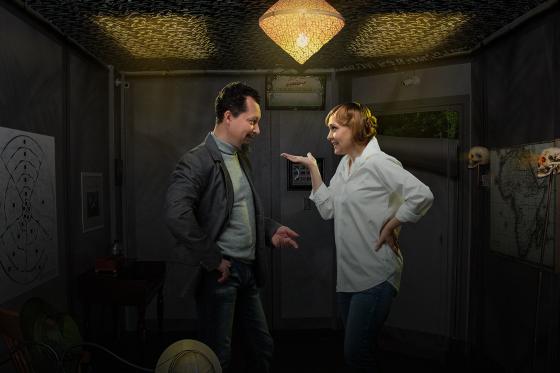Tips on Escape Rooms From a Game Master: Outsmart Time Like a Pro

As soon as the door of the escape room closes behind you, the clock mercilessly counts every second. Be sure that 60 minutes will flash by if you act chaotically, yet every second can work for you when you know the pro secrets. We have created a practical guide from a game master (the very one who watches your game through cameras) that will help you escape a minute earlier than seems possible.
Team chemistry: prepare for the game before it starts
Victory is born not inside the escape room but long before the first lock clicks shut. First agree on roles: who runs the team timer, who is the "archivist" logging clues, and who is the "seeker" checking every nook for hidden hints. Only then move on to the core principles of interaction, to which you should pay special attention:
- Speak out loud. Announce every number, symbol, or key as soon as you find it so teammates don’t waste time on already-solved pieces.
- Don’t keep items "in a pocket". Put all objects on a common table; otherwise the needed key disappears in someone’s hand.
- Divide the space. If the room is large, split it into sectors and assign them to specific players.
- Trust intuition. Noticed a crack that "looks suspicious"? Better check than ignore—there are no random details in an escape room.
- Respect the leader, but listen to everyone. A "childlike" idea from a newcomer often becomes the key to a puzzle seasoned players missed.
A clear role split and constant verbal exchange will already save several minutes—each of which can be decisive—half the battle. Make these rules a habit, and the team will run smoothly even in the most chaotic room.

An effective tactic for solving puzzles
Once inside, it’s easy to be overwhelmed by the number of props and locks. Instead of random attempts, follow a structured approach. Calm, coordinated team actions help avoid duplicating efforts and reduce reliance on operator hints. In addition, use these life-hacks:
- Remove the "noise". First open obvious locks, switch off flashing mechanisms—this makes the space clearer.
- Sort finds. Numbers with numbers, symbols with symbols; order speeds up pattern spotting.
- Log progress. Write down combinations you’ve tried; it saves time and nerves.
- Don’t get stuck. If a puzzle takes more than three minutes, hand it to someone else—a fresh mind sees the obvious.
- Take hints strategically. A spare 50 seconds in the finale is worth more than five minutes at the start; keep the "joker" for the climax.
With this approach you’ll gain more positive emotions and move toward opening the final door with less energy spent.
Micro-managing time—your invisible weapon
Every escape room has "psychological traps": lighting effects, loud sounds, themed décor—designed to make players forget the seconds. From the start keep your own timer—a phone or a watch with a second hand. When 15 minutes remain, switch to quick-scan mode: circle the room to avoid missing a small hint that appeared with the new set piece. The last three minutes should belong only to the main lock: put aside secondary puzzles and concentrate team resources on the primary goal. This “finish sprint” often decides the fate of the entire adventure.
Final life-hack: when less than a minute remains, announce your actions even louder. This naturally raises team pressure and helps avoid panic—you clearly hear what’s done and what still needs checking.

After the escape: analysis for the next victory
Euphoria after a successful game is great, but a true pro always performs an "audit". Ask the master how many hints you used, which puzzles took the most time, and where the team was most effective. Analyze whether roles were distributed correctly and whether the leader should be changed next time.
Experience shows: groups that spend 5–7 minutes on feedback after each session improve their escape stats by 20 percent by the third room. So don’t leave the venue immediately. A brief error review today saves precious seconds tomorrow. And remember: the best records are set not by logic geniuses but by teams that listen to each other and use every minute with discipline. Practice—and you’ll "beat the clock" and impress the game master.
FAQ
How can we prepare for an escape room so we don’t waste time in the game?
Distribute roles within the team before the start—this saves minutes in the very first stages. Speak out loud and act in sync—team chemistry is often more important than experience.
What tactic helps solve puzzles faster?
Work structurally: sort finds, log attempts, and swap tasks if something doesn’t work. Don’t burn hints at the start—save them for the finale.
Why is it important to analyze the game after leaving the room?
Reviewing mistakes and discussing roles boosts team efficiency from the next game onward. That’s how teams improve results and start "playing for records".




